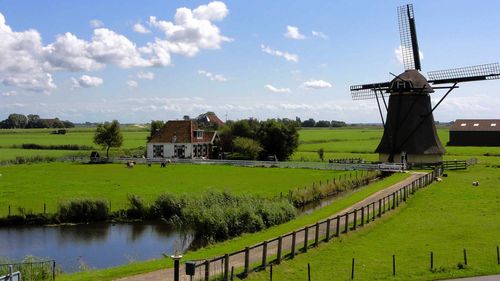Flint, Michigan is a city known for its history with the automotive industry and its ongoing struggles with lead contamination in the water supply. However, this city has so much more to offer than these oft-cited tales of woe. To truly understand Flint, one must delve deeper into its culture and history and discover the unique insights that only come from experiencing the city for oneself.
Flint’s history is closely tied to the growth of the automotive industry, with the city being home to General Motors’ Buick Motor Division at the turn of the 20th century. This legacy can still be seen in the city today, with the Flint Institute of Arts showcasing a collection of cars alongside other artworks. The cultural importance of cars continues to be celebrated through events like Back to the Bricks, a week-long car show that draws visitors from around the world.
But Flint is not just about cars. The city is home to numerous civil rights landmarks, including the home of the first African-American auto worker in Flint and the site of the 1937 GM sit-down strike, which helped establish the United Automobile Workers union. Visitors can also learn about Flint’s music scene, which has produced notable artists like jazz musician Donald Byrd and rapper Jon Connor.
Perhaps most importantly, Flint’s culture is defined by its people. Despite the many challenges faced by residents, there is a strong sense of community and resilience that permeates the city. This can be seen in initiatives like the Flint Soup micro-granting dinner, where residents come together to fund community projects, or the Flint Farmers’ Market, a hub for fresh produce and local businesses.
Of course, it would be remiss to discuss Flint without addressing the ongoing water crisis. The city’s residents have faced years of lead contamination in the water supply, an issue that has forced many to rely on bottled water and filtration systems for their daily needs. However, it is important to note that Flint’s response to the crisis has been a testament to the city’s strength and perseverance. Organizations like the Flint Water Study group have worked tirelessly to raise awareness and advocate for change, and residents have come together to support one another in the face of adversity.
In conclusion, to truly understand Flint, one must go beyond the headlines and explore the city’s rich culture and history. From its ties to the automotive industry and civil rights movement, to its vibrant music scene and strong sense of community, Flint offers unique insights into the American experience. While the challenges faced by the city are significant, the resilience of its residents is equally so. By engaging with Flint’s culture and history, we can gain a greater appreciation for the strength and spirit of this remarkable city.
(Note: Do you have knowledge or insights to share? Unlock new opportunities and expand your reach by joining our authors team. Click Registration to join us and share your expertise with our readers.)
Speech tips:
Please note that any statements involving politics will not be approved.
